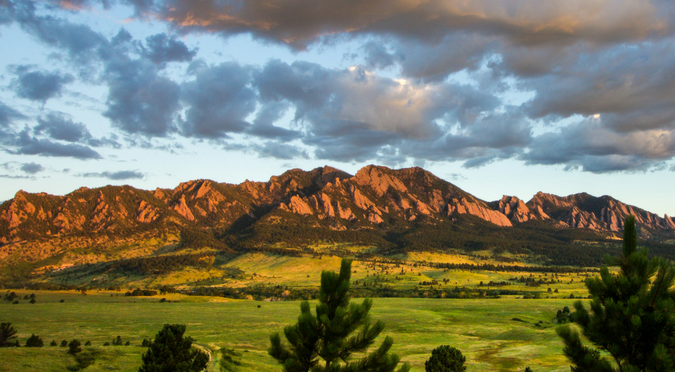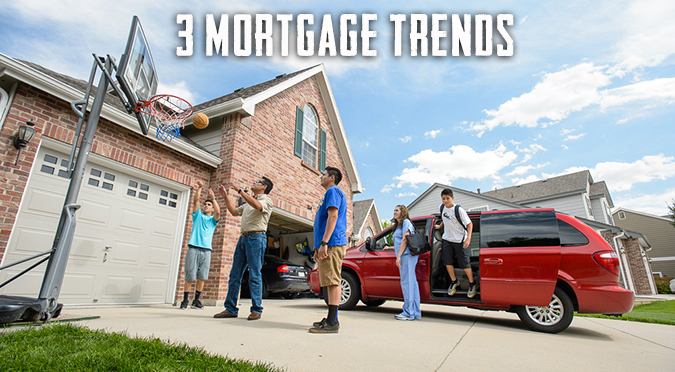Note: This is the second of a two-part blog series based on the Marshall Fire Community Town Hall meetings. The first post about property insurance claims was published in April 2022.
On Dec. 30, 2021, parts of Boulder County were devastated by wildfires. Many properties were tragically damaged or destroyed, dramatically altering the lives of our neighbors and friends. As a result, we came together to rebuild as a community and continue to do so today.
Did the fires leave you wondering what to do with your current mortgage? Or what loan options might be available to help you build a new home? We’ve got some answers.
To help our community and members navigate the aftermath of the fires, we hosted virtual town hall meetings on the third Tuesday of each month. You can view these videos on the Elevations Credit Union YouTube page. We are also sharing highlights from these conversations on the Elevations blog.
We’ve teamed up with Amy Bach, executive director of United Policyholders, and Bobbie Baca, director of the Colorado Department of Regulatory Agencies (DORA) Division of Insurance. Additional expert insight is shared by Elevations Credit Union’s Liz Million, senior vice president of mortgage; Eric Long, senior commercial loan officer; and Todd Peyok, vice president of commercial lending in an effort to answer questions about existing mortgages, new mortgages and additional loan options.
Q: Does Elevations Credit Union offer forbearance to members?
A: Yes, Elevations does offer forbearance to members. In the context of mortgage lending, forbearance is when the lender allows the borrower to make lower payments or to pause the payment process altogether during a time of hardship.
During the forbearance, members work on figuring out what they want to do with their mortgage and property.
Q: What happens to my current mortgage loan with Elevations?
A: Reach out to your mortgage loan officer at Elevations. We will review the existing balance on your current loan and the initial insurance payout, then estimate what it would take to rebuild a similar home.
With those three details, a plan of action can be created. We can calculate if it makes sense to pay off your mortgage, keep it in place, how much insurance money you’ll have to apply toward a construction loan and, hopefully, create some clarity on the situation.
You don’t need to be an existing Elevations member or have a current mortgage at Elevations to apply for a construction loan with us. We’re happy to assist you with any resources that will help you move forward from the fires, including providing a list of vetted builders to consider.
Q: I’m thinking of remodeling or rebuilding, but I’ve never worked directly with a contractor. What do I need to know?
Elevations will perform due diligence on the contractor. This is important in any market, but especially with the Marshall Fire. There’s an acute demand for contractors, which is causing residents to reach beyond Boulder County to find people to do the work.
If the contractor has not partnered with Elevations, we ask them to fill out a questionnaire and provide their contractor license and insurance policy. We check references and review prior work. We also ensure they are bonded and proficient at the type of work the member is seeking. Someone may be good at a remodel, but have they done homes from the ground up? We will find out and share that information with members.
Selecting an experienced and trustworthy homebuilder is critical.
Q: How does an Elevations construction loan work? How do I take draws on that loan to pay my contractors?
A: We understand how much community members want to get back into their homes or build new places to live as soon as possible. Many members are looking to rebuild at this time, making construction loans a popular option. In the meantime, insurance proceeds are calculated and the existing mortgage is adjusted or paid off.
At Elevations, we typically process draws once a month. This means we draw the money off the loan and put it into a controlled disbursement account to use for payments to your general contractor, subcontractors and for other building-related expenses such as purchasing windows or appliances. The amount of the draw is based on the amount of the costs incurred each month.
This method of fund control protects the homeowner to ensure builders aren’t going over budget or getting ahead of themselves in the process by bypassing inspections.
Q: Is Elevations accepting Small Business Administration (SBA) disaster loans? If so, can I use it to pay off my mortgage?
A: This disaster recovery loan option is still being reviewed. At Elevations, we are waiting to learn more about the requirements of using these loans, how they are secured and if it puts liens against your property that may restrict the building process.
Members should be aware these loans have a maximum payout of $250,000. Also, they are loans, not grants, and will need to be paid back according to the loan terms.
SBA loan applications are often rejected if you have a homeowner’s insurance policy in place. Be prepared to reapply a second time if the SBA disaster loan seems like a good option for your plans.
More details can be obtained from the Boulder Office of Emergency Management Disaster Assistance Center (DAC).
Q: What makes more sense, sell the lot/land my home was on and walk away, or rebuild on the land, and then possibly re-sell the new home?
A: Every homeowner is unique and has different goals. Some want to live at their same address again while others are exploring new neighborhoods.
Many homeowners affected by the fires are opting to rebuild, collect a second insurance check when building is complete and then sell the finished home.
If this is something you’re debating, doing the math may help you decide. Our Mortgage Department can help you determine how to maximize your insurance proceeds, pay off the new home and then sell it for a profit to use toward your next property.
Learn more about these specific topics by viewing the Marshall Fire Community Town Hall meeting hosted on March 15, 2022, hosted by Dennis Paul, vice president of government affairs & strategic relationships at Elevations Credit Union.
Do you have questions related to your mortgage and other loan options? Please browse the Marshall Wildfire Resources FAQ or contact us directly. We’re here for you every step of the way during this time of recovery.


